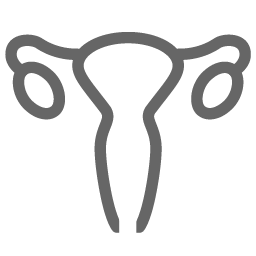Vulvovaginal symptom treatments #2
In women with a personal history of breast cancer who have persistent vulvovaginal symptoms that are unresponsive to non-hormonal treatments, consider second-line treatment with vaginal oestrogens (low dose vaginal oestradiol, or vaginal oestriol).
Vaginal oestrogens can be considered for the management of persistent vulvovaginal symptoms in women with a history of breast cancer who are non-responsive to non-hormonal vaginal gels or lubricants. A discussion of the potential risks and benefits between the woman and her treating team is recommended. Note: Vaginal oestrogen may be systemically absorbed. For women taking Aromatase Inhibitors this may result in measurable increases in circulating oestrogens. The clinical significance of systemic absorption is uncertain
Body of evidence provides some support for recommendation(s) but care should be taken in its application
How this guidance was developed
This recommendation was adapted from the CA 2016 guidelines (Australia). The source recommendation was based on a systematic review of the evidence conducted to January 2014 and was graded 'C’ (using NHMRC methods) by the source guideline authors. The source recommendation was adapted by removing some of the detail.
Vulvovaginal symptom treatments #2
In women with a personal history of breast cancer who have persistent vulvovaginal symptoms that are unresponsive to non-hormonal treatments, consider second-line treatment with vaginal oestrogens (low dose vaginal oestradiol, or vaginal oestriol).
This recommendation was adapted from the CA 2016 guidelines (Australia). The source recommendation was based on a systematic review of the evidence conducted to January 2014 and was graded 'C’ (using NHMRC methods) by the source guideline authors. The source recommendation was adapted by removing some of the detail.

